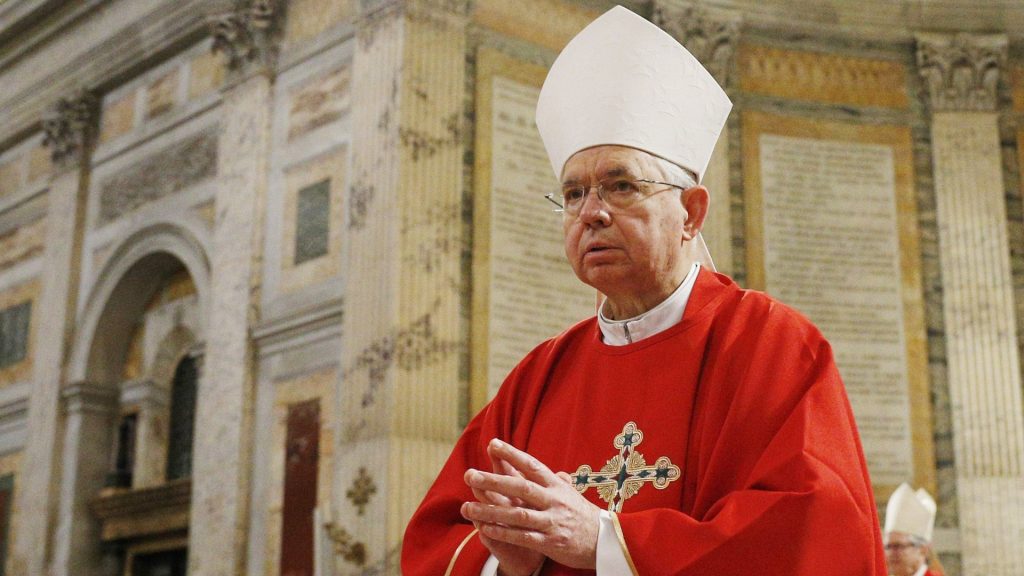The upcoming gatherings of Catholics for a synodal process are important opportunities for outreach, support, and communication, according to Archbishop Jose Gomez of Los Angeles, president of the U.S. bishops’ conference.
“The Holy Father has called for the local churches to hold inclusive consultations with the People of God as part of the synod,” Gomez said Oct. 20. “We face a challenge after over a year of being physically distanced within our communities because of the Covid-19 pandemic. This synod is an opportunity to meet the immense and important request of the Holy Father to engage in dialogue to better understand our call to holiness and feel the responsibility to participate in the life of the Church.”
A synod is a meeting of bishops that aims to discuss a topic of theological or pastoral significance, in order to prepare a document of advice or counsel to the pope.
“Outreach, communication, support, and encouragement are vital in order to be missionary disciples,” Gomez continued. “As is with the nature of the synod, I hope we will learn as we ‘journey together,’ and I pray that the process will enrich and guide the future path of both the local Church as well as the universal Church over the course of the next two years, and beyond.”
The Synod on Synodality, opened by Pope Francis earlier this month, is a two-year, worldwide undertaking during which Catholics will be encouraged to submit feedback to their dioceses.
Synodality is generally understood to represent a process of discernment, with the aid of the Holy Spirit, involving clerics, religious, and lay Catholics, each according to the gifts and charisms of their vocation.
Father Michael Fuller, interim general secretary for the U.S. Conference of Catholic Bishops, is leading efforts to share synod-related information with U.S. bishops, the bishops’ conference said.
The U.S. bishops’ conference’s diocesan liaison is Richard Coll, executive director of the U.S. Conference of Catholic Bishops’ Department of Justice, Peace and Human Development.
“I welcome the opportunity to be a resource to the diocesan representatives as they engage with their local faithful in this most important phase of the synod,” Coll said.
The bishops’ conference is providing tools and tips for local diocesan synod efforts, as well as sharing the preparatory documents prepared in Rome by the Synod of Bishops.
The U.S. bishops’ conference website will provide highlights from the local-level synod and aim to incorporate synodal experiences into its resources.
The opening phase of the global synod process is a diocesan phase expected to last until April 2022. The Vatican has asked all dioceses to participate, hold consultations, and collect feedback on specific questions laid out in synod documents.
In Sept. 18 remarks, Pope Francis said the synod is “not about gathering opinions, no … it is about listening to the Holy Spirit.” At an Oct. 10 Mass, the pope stressed the importance of using the synod to encounter God and one another. He said he hoped the acts of encountering, listening, and discerning would characterize the synodal path.
One objective of the synod on synodality, according to the preparatory document, is to examine “how responsibility and power are lived in the Church as well as the structures by which they are managed, bringing to light and trying to convert prejudices and distorted practices that are not rooted in the Gospel.”
The Vatican documents ask a “fundamental question” for dioceses and bishops to consider: “A synodal Church, in announcing the Gospel, ‘journeys together.’ How is this ‘journeying together’ happening today in your local Church? What steps does the Spirit invite us to take in order to grow in our ‘journeying together’?”
A second, continental-level phase of the synod will take place from September 2022 to March 2023. The third, universal phase will begin with the Sixteenth Ordinary General Assembly of the Synod of Bishops, dedicated to the theme “For a Synodal Church: Communion, Participation, and Mission,” at the Vatican in October 2023.

